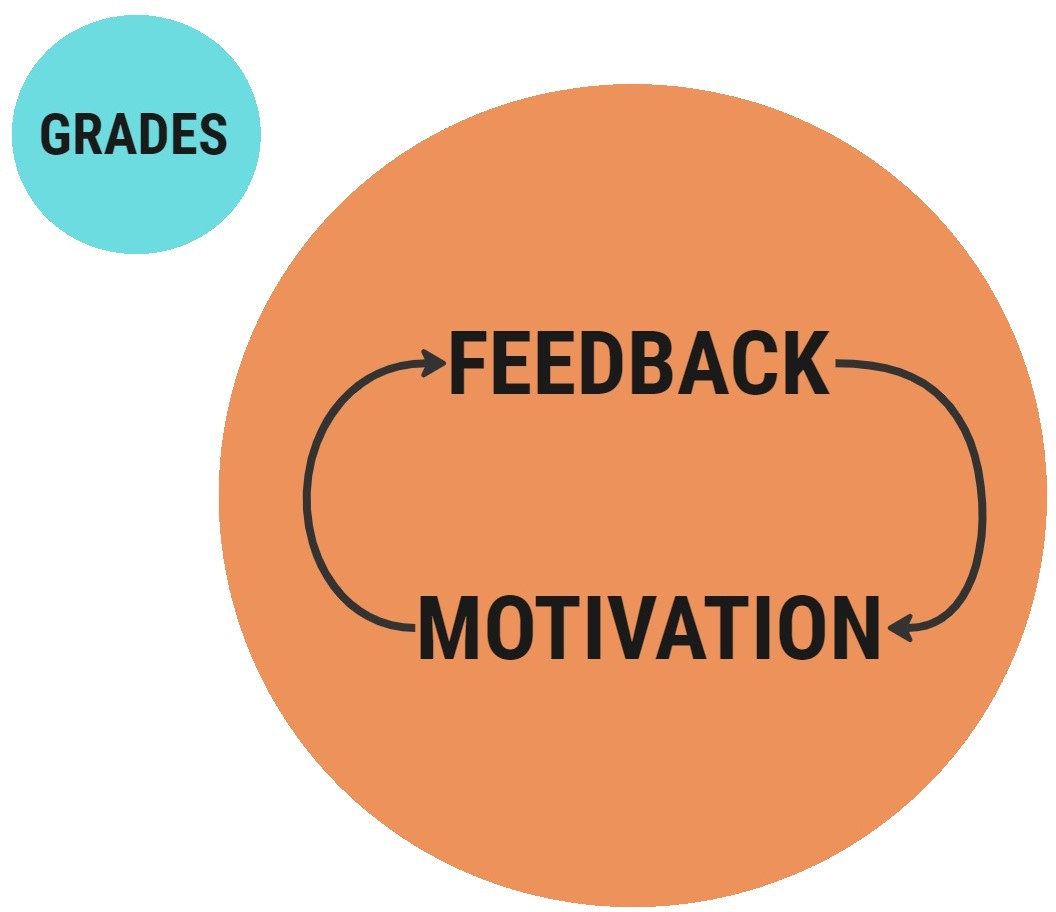More on grades and grading
Grades, feedback, and motivation are all connected, but a focus on grades frequently eclipses meaningful feedback and authentic learning, rather than working in harmony with these critical elements.
I have written quite a bit over the past four years about grades and grading, which is not surprising since evaluating student work is such an important part of what we do as professors. It’s also such a fraught process.
If you haven’t explored any of my previous posts on grading, here’s a good place to start:
As educators, we spend an inordinate amount of time thinking about, calculating, and discussing grades. Our students are often obsessed with the minutiae of grade calculations and distinctions, arguing for every last point as if their entire future depends on each decimal place. But what do grades really communicate? At best, they offer a rough approximation of a student's competency or skill level in a particular area. But the time we spend fretting over whether an assignment or test should receive a 94 or a 96 could almost certainly be better spent offering meaningful qualitative feedback that helps students reflect and improve.
Delivering thoughtful feedback requires time and concerted effort that is too often sacrificed in the name of efficiency when grading. Too, I think we often believe - perhaps rightly - that we need the motivation of grades to encourage students to complete the work assigned to them. I think of these as overlapping, perhaps competing, interests of feedback, grades, and student motivation, as laid out in the diagram below. Some of the time our grading processes inform and shape the feedback we provide, and some of the time our feedback reinforces the grades we assign, and each of those have some influence on student motivation. But too often - and, I believe, particularly in the eyes of students - the feedback they receive is processed as a separate thing from the grades they earn.
I don’t think it’s controversial to assert that students would be better served spending less time worrying about grades and more time absorbing constructive feedback. The grade negotiation some engage in represents energy that could be channeled toward reflection and action. As educators, we need to be the ones to deemphasize grades and instead focus our limited time on providing the kinds of feedback that help students grow. I would love to see more of us move towards thinking about grades as being a much smaller piece of what we do, with greater emphasis on the foundations of feedback and student motivation.
As a parent of college and high school-aged students, I have a front-row seat to the frustration students experience in trying to understand the grades they receive. Over the past year I - with colleague Prof. Indigo Eriksen - have conducted and analyzed interviews with dozens of students, all of whom spoke to the anxiety they feel about grades.1 As Alfie Kohn argues in The Case Against Grades, grades do not motivate students to learn; they motivate students to maximize their grade.
We know that student learning relies on meaningful qualitative feedback beyond just letters and numbers. Students need to value substantive critiques of their work more than the final grade. Ideally, we would be able to articulate the connection between what we are asking students to do and their own academic and professional goals, increasing their intrinsic motivation to complete course assignments, and grades could be reduced to an afterthought. Perhaps we might even explore allowing students to decide their own final grade. However we approach assigning a final letter grade or numerical score to student learning, the more we can provide the kind of substantive, improvement-oriented feedback that students need, the more we can foster a sense of intrinsic motivation.
If we underscore the importance of constructive criticism over final marks, they too may come to see grades for what they often are - arbitrary symbols that communicate far less than we imagine.
If you could change one thing about your current grading and evaluation practices, what would you change?
For more reading…
© 2024 Tips for Teaching Professors
Research conducted with Prof. Indigo Eriksen on student experiences with labor-based grading is forthcoming from Teaching English in the Two-Year College.











